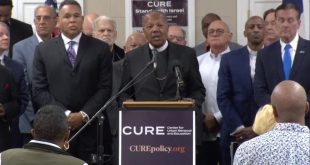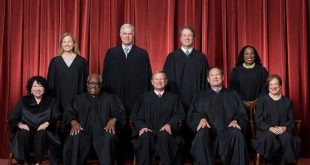San Diego County is under new COVID-19 restrictions called a “purple” tier re-opening, in which non-essential businesses like restaurants and movie theaters must operate outside or remain closed. Close-contact businesses, like hair salons and barbershops, can remain open. These are considered essential services.
Salon owner Gayle Fulbright told Fox 5 that she thinks “the reason we got switched is because we made a lot of noise. Our industry — the pro-beauty industry — really rallied, letting our governor know that we are a safe environment,” and that “as a team, decided that we were not going to outside. It wasn’t professional and it wasn’t as sanitary as inside.”
Before the purple tier restrictions, churches in California could re-open for indoor services only if county health officials approved and churches limited attendance to 25 percent capacity or 100 people, whichever is fewer. Now churches must hold services outdoors only.
But a different kind of establishment can hold indoor services, at least until the end of the month — strip clubs.
San Diego banned “live entertainment” but didn’t specify adult entertainment, so two strip clubs re-opened. The county sent a cease-and-desist order. The clubs filed a lawsuit in October, alleging that the order violated their constitutional rights to due process and equal protection. A judge apparently agreed and ruled the strip clubs may temporarily re-open pending a hearing at the end of the month.
From the Free Beacon:
San Diego Superior Court judge Joel R. Wohlfeil ordered the state to end any actions that prevent the clubs from “being allowed to provide live adult entertainment,” according to the decision. The owners of two strip clubs argued that their business is legally protected speech guaranteed by the First Amendment—the same argument that churches have been making about their own services.
Could this judge’s decision aid churches in their quest to lift COVID-19 restrictions?
Paul Jonna, special counsel for the Thomas More Society, which is representing churches challenging the restrictions, expressed confidence that this decision bodes well for the churches. If strip clubs are entitled to constitutional protections, then churches are as well, he told the Free Beacon.
“If you’re going to accept that argument that dancing nude is protected speech that’s so significant that it overcomes the government’s interest in regulating its citizens with COVID-19 orders, then obviously the divine worship of God, which is expressly mentioned in the First Amendment, should be held to a higher standard,” Jonna said.
Photo credit: By Adbar – Own work, CC BY-SA 3.0, https://commons.wikimedia.org/w/index.php?curid=32001334 Link
 CURE News and Clergy Blog News and Commentary for Christians
CURE News and Clergy Blog News and Commentary for Christians



